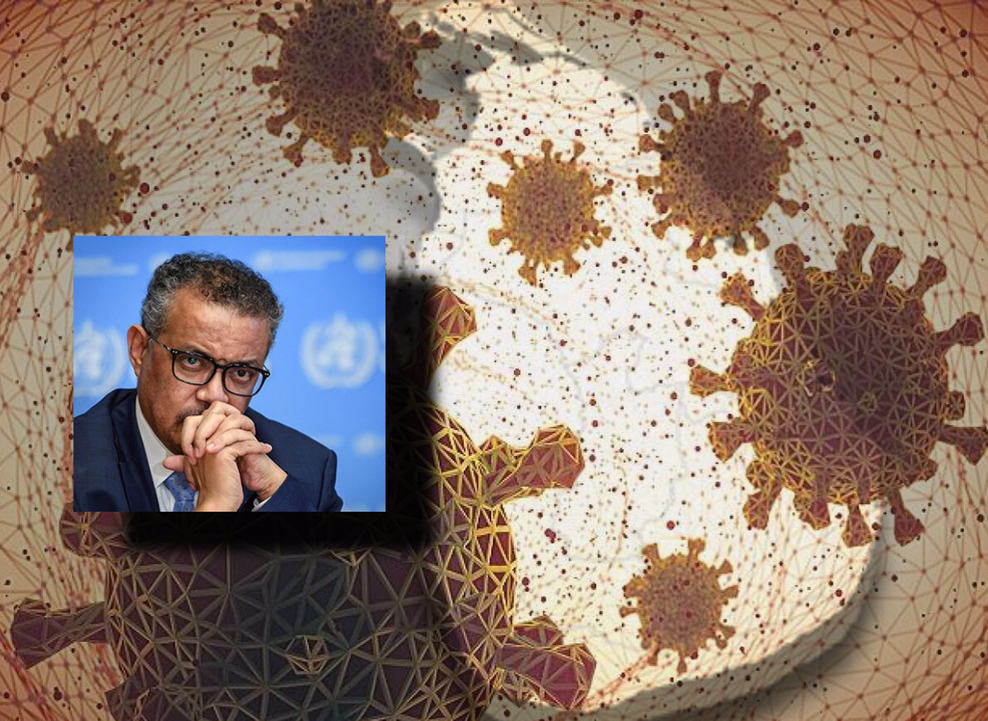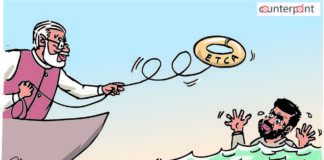The country is at a critical juncture in her Covid trajectory. In the WHO’s Covid dashboard for 25 August, out of the top 15 countries with the highest number of deaths per 100, 000 population, Sri Lanka is at 11th place. The Director General of Health Services Dr Asela Gunawardana confirmed that on the 27th of August 214 people succumbed to Covid bringing the cumulative total to 8371. The daily number of new infections on the 27th was at 4591.
The virus is now spreading in homes according to the Independent Technical Expert Group(ITEG) which regularly assesses the country’s Covid situation. At their latest meeting on the 26th, the ITEG which is a collective of experts from various medical disciplines, also observed that the number of people dying from Covid is increasing faster than projected and that clinicians working in hospitals have noted a rise in the severely ill. The gap between the last three thousand deaths have been narrowing to a mere couple of days in between. Contrast this with the first 1000 deaths which happened over 417 days for an idea of the seriousness of the health crisis.
Among the ITEG’s other observations were that nearly 90 percent of the samples sequenced have shown that the Delta variant which is highly transmissible with a shorter incubation period, has spread beyond the western province to other provinces.
Their recommendations, which have also been guided by projections of the University of Monash, is that an extension of the lockdown until 2 October will save 10, 000 lives while a shorter one until 18 September will save 7, 500 lives. A lockdown will also bring much needed relief to a health sector burgeoned with a dearth of beds and critically low levels of supplies including oxygen. Since the 12th of August the demand for oxygen has far exceeded production. A peak on the 24th of August edged up demand to 134 tons while production was at 74 tons. The government has deployed the navy to ship oxygen supplies from India to respond to the extra demand. The crunch however is thathundreds of doctors and nurses have also contracted the virus and one of the many worstcase scenarios is the lack of care for patients when this happens.
Proper enforcement of the lockdown is crucial to prevent transmission of the virus for which the ITEGrecommend key enabling factors. Adopting strict social measures including tightening of mobility using data such as Google maps,mobile phone data and Facebook as well as household and individual compliance to stop the spread of the virus in homes will be vital. They also recommend advance planning for a gradual reopening of sectors, regions and a return to employment categories.
The ITEG are also pushing for an acceleration in vaccinations including administering the most effective vaccines to the most vulnerable for whom there should be a safety net through government led initiatives with support from religious institutions, civil society and NGOs.
It has been evident for long that the government fights shy of declaring extended lockdowns because of the economy. Its perennial claim is that Sri Lanka’s economy cannot absorb long lockdowns and nor can segments of her population like the daily wage earners. The point the ITEG makes is that stringent measures will reduce transmission, caseloads and deaths, enabling a quicker economic recovery. It will also get Sri Lanka off the red classification listand into the green list by the end of this yearwhich will be favourable for the tourism industry which is now crippled. An economic projection prepared by Imperial College is a persuasive tool for policy makers. According to the model the economic impact of a ten–day lockdown ending on 30 August followed by a gradual relaxation will be $1.12 bn and a four –week lockdown ending on 18 September followed by a gradual relaxation will be $ 1.67 bn. In the third scenario, a six– week lockdown ending on 2 October followed by a gradual relaxation will be $ 2.22 bn. The message here appears to be that the relatively marginal differences will be worth the price to pay to save lives.
Meanwhile the shortage of drugs in the country,including those used for critical care such cancer and cardiology issues, is as worrying as the Covid situation. A delay in approvals for the procurement of drugs and the issuing of renewal certificates for drugs coupled with a shortage of foreign currency can be among the main issues behind the shortage. The death last week of Dr Sathis Jayasinghe, the founder of the North Colombo Medical College (NCMC), sparked a controversy about Tocilizumab, a humanized monoclonal antibody which is currently being used to treat Covid pneumonia. His family claim that Dr Jayasinghe passed away because he was not given the drug on time. Dr Jayasinghe was93 years at the time of his passing after dedicating a lifetime to medicine. Ironically, the discipline to which he gave so much also let him down in his hour of need. His objective of starting the NCMC and the North Colombo Teaching Hospital which was affiliated to it for its undergraduates to complete their clinicals, was to boost the country’s doctor- patient ratioand to facilitate knowledge sharing. He was magnanimous. Thousands of patients benefitted from his consultations for a nominal fee and got free medicines because he did not want to make money selling his knowledge to people who came to him to alleviate their pain. He was late President JR Jayewardene’s personal physicianand had to be by his side when he travelled the world. Among the few privileges of this were his meetings with historic figures like Fidel Castro and Emperor Hirohito. An honest man, he would account for and return all the allowances he got because there was nothing that he had to spend for. His contribution to the country through his professional services was big. But his beginnings were small and humble. His roots were in Payagala and he was a part of a big family. Life was not easy because his father who was a doctor and his mother, a housewife, had to bring up their six children. After waking up in the morning he would milk the cow and leave it with his mother before walking along the rail track to school at Holy Cross College in Kalutara. He would take the same route back home after school. He finished his secondary education at Ananda College and went on to study medicine at the medical faculty in Colombo. After qualifying as a doctor he started his own clinic in Wattala. The experiences of his family to get him the medical care he needed after he was diagnosed with Covid resonates closely with what experts in the ITEG have been warning about for weeks and have been issuing guidance so the pitfalls can be avoided. His family’s search for a hospital bedin both government and private hospitals was largely futile until they were finally able to find one in a private hospital. When he had to be moved to the ICU they were lucky to find one bed which was falling vacant in the ICU of the same hospital. The hospital prescribed Tocilizumab for him and the search for it was a painful one. Despite claims in parliament by State Minister for the Regulation of Pharmaceuticals Channa Jayasumana that the drug is available in the country, it was not available for purchase in the state sector. Nor was it available in the private sector where, according to a reliable source, it was being retailed for up to one million rupees when the normal price is less than 120, 000 rupees. Appeals to the family’s influential contacts in government and elsewhere also drew a blank. Opposition leader Sajith Premadasa to whom the family reached out to in desperation said he will do his best. He had found and given what was reportedly the last dose which was available in the country to treat the late Mangala Samaraweera. By the time Dr Jayasinghe’s family was able to get the drug it was too late. Because of the current demand for it globally, Tocilizumab is gold dust. According to the Secretary to the Ministry of Health Major General Sanjeewa Munasinghe, the country has exhausted its monthly quota and is waiting for the arrival of next month’s quota. He said that Sri Lanka is also negotiating with India for a stock of the drug. The probability of getting this is quite high. Meanwhile both the state and private sector are reportedly using substitute medicines for the treatment of patients with Covid pneumonia. This includes a drug which is used for cancer treatment and the immediate need is to ensure the timely supply of stocks of these critical care medicines to avoid a double jeopardy especially if other countries are also following the same protocols and could restrict the supply . According to informed sources, there haven’t been deliveries of stocks of these medicines for at least four months.
Before a drug is procured it has to be evaluated and recommended by the State Pharmaceuticals Corporation and the Medical Supplies Division of the Ministry of Health. It is then forwarded to the State Ministry for the Regulation of Pharmaceuticals for a further recommendation before it is sent to the Secretary, Ministry of Health for greenlighting and forwarding to the procurement committee. A delay in this process will result in a delay in the arrival of stocks of drugs in the country.
Currently, there is concern about the National Medical Regulatory Authority not being able to issue renewal certificates because of computerized records of drugs having been deleted from the system. This could be delaying the import of about 300 drugs. The availability of computer records speeds up the process which can be completed in about one week. If not, the delay could run into months. (SW)



 Logging you in...
Logging you in... Loading IntenseDebate Comments...
Loading IntenseDebate Comments...

